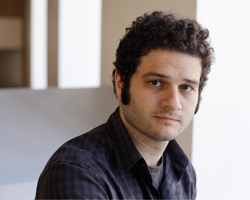
KUALA LUMPUR, June 15 — Felda Holdings Berhad, one of the world’s largest plantation companies managing over 500,000 hectares mainly under oil palm, still has far to go to catch up to major industry players in terms of profitability.
The plantation giant’s yields slightly exceeded industry benchmarks but profits were just a fraction of those earned at oil palm majors. The government also admitted recently that the company's cash pile has dwindled from RM4.08 billion to RM1.35 billion but said the money was used for its ventures and new head office.
Despite having the most land under its management among companies surveyed by The Malaysian Insider, Felda’s RM667 million in profits were much lower than that of IOI Corporation Berhad with RM1.639 billion, Sime Darby Berhad with RM1.795 billion and Wilmar International Ltd which reported US$2.294 billion (RM7.339 billion).
This hurt its profitability per hectare ratio which works out to RM1,201 compared with RM10, 859 for IOI, RM3,380 for Sime Darby and RM31,124 for Wilmar.
When contacted, Felda said the company cannot be compared to private listed entities as it has social obligations and its original mission was to help develop poor rural communities but nevertheless managed to sustain relatively high yields.
“Our yield is at par/higher than the industry average,” said Felda in a written reply to questions from The Malaysian Insider.

Felda’s yield of 19.8 tonnes per hectare was slightly higher than the Malaysian Palm Oil Board 2009 average yield of 19.2 and slightly lower than that of Sime Darby (20.6) and Wilmar (20.2).
Analysts say that it could be hard for Felda to achieve the best yields however as much of the land under its management was owned by individual settlers and was therefore fragmented.
One analyst said however that Felda still needed to be efficient in order to generate the best returns so that the money could be reinvested and shareholders, who include the Felda settlers, get good dividends.
“Look at Petronas, they are profit oriented,” said the analyst.
The company’s profits could have been affected by its costs. Felda however did not provide its costs when requested. Felda also said that it does not put out annual reports as it is not a listed
company.

Former Deputy Land and Co-operative Development Minister Datuk Dr Tan Kee Kwong, who has been critical of the Najib administration’s handling of Felda, said however that as a government-linked company Felda should put out annual reports for better accountability.
“It is a government-linked company and it belongs to the people,” he said when contacted.
Felda's largest shareholder is the Felda Investment Co-operative (Koperasi Permodalan Felda or KPF) which holds 51 per cent of the company. Felda Global Ventures Holdings Sdn Bhd (Felda Global), a wholly-owned subsidiary of the government agency Federal Land Development Authority (Felda), holds the remaining 49 per cent, while the Minister of Finance Incorporated has one Golden Share.
9 Reasons You Should Be Careful Investing In Felda IPO/ Stock
1)The chances of getting the Felda Global Ventures Holdings Berhad IPO are very low.
2)The prospect of Felda Global Ventures Holdings Berhad may not be so good, and therefore, may not deserve a high Felda stock PE ratio. About 53% of Felda oil palm trees are more than 21 years old, and oil palm trees have an average life of only 25 years. Meaning more than half of Felda Oil Palm tress are about to die. (or do they die? Or just not producing oil palm/ FFB). After the trees die, their profits will drop sharply.
3)Look at the listing of Facebook IPO. Facebook stock price started to drop after listing and many incurred losses or paper loss. However, this Felda stock may temporary supported by government fund.
4)World economy is not good. World stock markets are dropping and dropping. Macquarie Securities started coverage of palm oil company Felda Global Ventures Holdings with an "underperform" rating and a target price of RM3.85 based on the firm's unfavourable tree age and rising downstream competition.
5)World Commodities prices are dropping. With price around RM5.50 a share , P/E for this stock is as high as 18 times for the current financial year. For comparison KLK P/E= 16, IOI P/E =17, Sime Darby-13, Wilmar ( Owned by Robert Kuok)= 12. You can make your judgement here.
6)CPO price is dropping. From the past few months high of RM3,600 in April to currently below RM3,000. After most analysts have came out with Felda Global Ventures Holdings Berhad target price (early last week), the FCPO dropped further.
7)Felda is not an efficient Oil Palm planter. Although their yield is about the same as industry average, they are still below those big planters.
8) Listing is more for political reason ?
9)Money will be locked up in IPO, better invest elsewhere for better return. Even big company Louis Dreyfus still doubting whether want to be Felda cornerstone investor.
Source: Malaysian Insider,http://politemarket.blogspot.com














